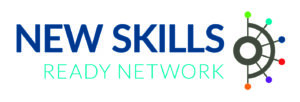Tejas Shah served as Advance CTE’s Spring 2022 Policy Intern. Prior to joining Advance CTE, he interned for elected officials, political candidates and a policy organization at the local level. He is a rising junior at Cornell University majoring in Policy Analysis and Management.
 Introduction
Introduction
This spring, I had the amazing opportunity to intern with Advance CTE, and support their state policy team. As I look back on my four months with Advance CTE, I am reflecting on my professional and personal growth. This post gives state leaders a learner’s perspective on being exposed to the field of Career Technical Education policy for the first time.
Where I Started
When I started my internship search for the spring semester, I knew I wanted to get real-world experience in the policy space. As a sophomore at Cornell University majoring in policy analysis, I am at that point in my college career where I am starting to think about my post-graduation plans. Thus, dipping my toes into a policy sphere that I had little experience with seemed exciting. Before interning with Advance CTE, I didn’t know much about CTE. I had heard the terms vocational education and work-based learning, and had a general idea about what that meant. However, my understanding of these topics contained assumptions and biases that I hoped to, and did, recognize through this internship experience.
Learning About CTE Systems
 The first project I was assigned to involved the New Skills ready network (NSrn) initiative. I transcribed interviews with education professionals across one of the six sites, Nashville, Tennessee. I heard from principals, guidance counselors, and educators, each with a unique perspective on CTE policy within their community and how the NSrn initiative impacted learners and systems. Hearing from such a diverse set of individuals was illuminating. Although I graduated from a public high school, I never truly knew how much goes into ensuring learners have a high-quality education.
The first project I was assigned to involved the New Skills ready network (NSrn) initiative. I transcribed interviews with education professionals across one of the six sites, Nashville, Tennessee. I heard from principals, guidance counselors, and educators, each with a unique perspective on CTE policy within their community and how the NSrn initiative impacted learners and systems. Hearing from such a diverse set of individuals was illuminating. Although I graduated from a public high school, I never truly knew how much goes into ensuring learners have a high-quality education.
This project made me reflect on my own high school experience. Through this project, I learned that high-quality career pathways would have helped me narrow down my career interests before I entered college. Additionally, hearing from guidance professionals about the significance of a high-quality guidance program was extremely interesting. I did not know career and technical education were options I could take advantage of. My guidance counselor had hundreds of other students to assist – perhaps a guidance department based on academic flexibility and smooth transitions from secondary to post-secondary education would have opened doors I did not know I had access to.
I also had the opportunity to build on my learning about writing a blog by highlighting another New Skills ready network site, Boston, Massachusetts. I heard from experienced professionals within high schools and postsecondary institutions, and learned about a variety of dual-enrollment initiatives in place that link secondary and postsecondary experiences. Like high-quality pathways, ensuring secondary learners have access to college-level learning opportunities significantly impacts postsecondary readiness and completion outcomes. I took a few classes at my high school that offered college credit. However, very few of these credits transferred to my postsecondary institution. Fortunately, I was not relying on these credits to graduate. However, through this project, I came to realize that for some students, getting college credit for high school classes can significantly improve a learner’s chances to succeed in college-level coursework and achieve a postsecondary attainment. I never realized that my college credits not transferring were symptoms of a larger issue that Advance CTE hopes to address.
What I especially enjoyed about my experience at Advance CTE was the infusion of equity in all the projects that I completed. My supervisor always made it a priority to bring equity to the forefront of our discussions. I was exposed to a variety of different readings, resources, and interviews that highlighted the importance of integrity of support for each learner within the education system. For example, I became aware of the importance of wraparound supports for learners. I lived a very privileged life – my parents had access to a vehicle and my house had stable internet. However, for learners who don’t have access to such resources, receiving a high-quality education is much more difficult. Additionally, through supporting the New Skills ready network project, I was introduced to the systemic racism and inequality that exists within the education sphere, which is reflected through gaps by race and ethnicity in participation in high-demand career pathways. Breaking down these systemic barriers and stereotypes is work that I now realize is extremely important to making sure all students, regardless of background, have equitable access to high-quality education.
Skillbuilding Journey
My experience at Advance CTE was a great opportunity for me to build my professional skills. This internship was the first time I was charged with managing projects. At first, it was a challenge to have the confidence to take on projects with a lot of responsibility. However, the staff at Advance CTE gave me plenty of resources to help me to be proactive in my task management. For example, I utilized Basecamp to remind myself of the checkpoints I needed to complete for a project. Breaking down a daunting assignment into smaller, more digestible pieces made it much easier for myself to understand what needed to be done. Additionally, splitting up projects into smaller portions made it easier to notice when I was falling behind. Coming out of this experience, I feel much more confident in my proactive communication skills. I have found myself applying these strategies to my college work as well. I have started to map out my assignments on Google Calendar. I can look a week, a month, or a whole semester ahead to make sure I am prioritizing my tasks and budgeting my time efficiently and effectively.
In addition to my project management development, this opportunity has strengthened my adaptability skills. Many of the deadlines set at the beginning of projects changed, some of which were last minute due to unforeseen circumstances. In some cases, receiving information or feedback from outside sources took longer than expected. In others, staff changes meant changing project roles. Though some of these changes could be dizzying, it helped strengthen my ability to be flexible. Projects and the needs of Advance CTE’s members constantly evolve, and being able to adapt to such changes is important. For example, I was tasked with updating pages on the Advance CTE website. However, during the project, the manager left Advance CTE, so my supervisor and I had to learn together to execute the project. This was intense at first, but it was a great learning experience as well. Proactive communication and collaboration allowed me to adapt and carry out the project successfully.
At the end of every month, I would have a check-in with my supervisor where we pinpointed skillbuilding areas that I have excelled in, and skillbuilding areas that I could improve upon. These monthly meetings were extremely beneficial in my development as a professional. I was given the ability to see my progress firsthand. We would brainstorm strategies to implement over the course of the following month to bolster my skillbuilding process. Through discussing hypothetical situations and deconstructing problems that occurred during the previous month, these monthly meetings were especially important in increasing my confidence within the internship program. Guidance and constructive criticism are paramount for learner development, in and out of the classroom.
Appreciation and Next Steps
I want to thank all the staff at Advance CTE. Their constant support and direction has been extremely helpful in my career exploration and development. This internship solidified my interest in researching and communicating policy. This summer I will serve as an intern for the Office of the Deputy Secretary for the U.S. Department of Housing and Urban Development. I look forward to continuing to broaden my skill set and policy experiences!
Tejas Shah, Spring 2022 Policy Intern

